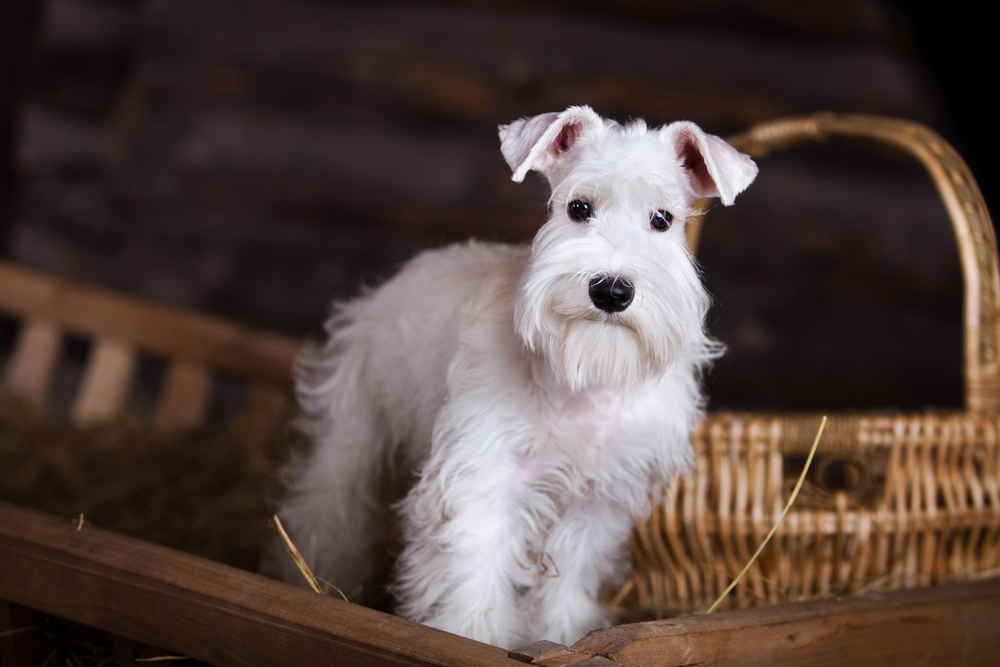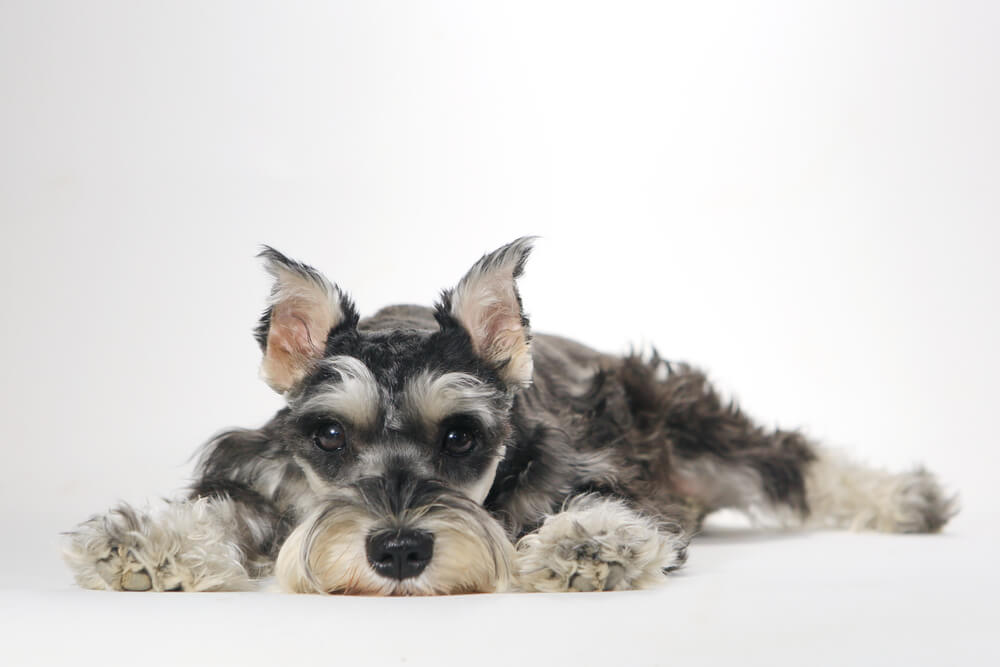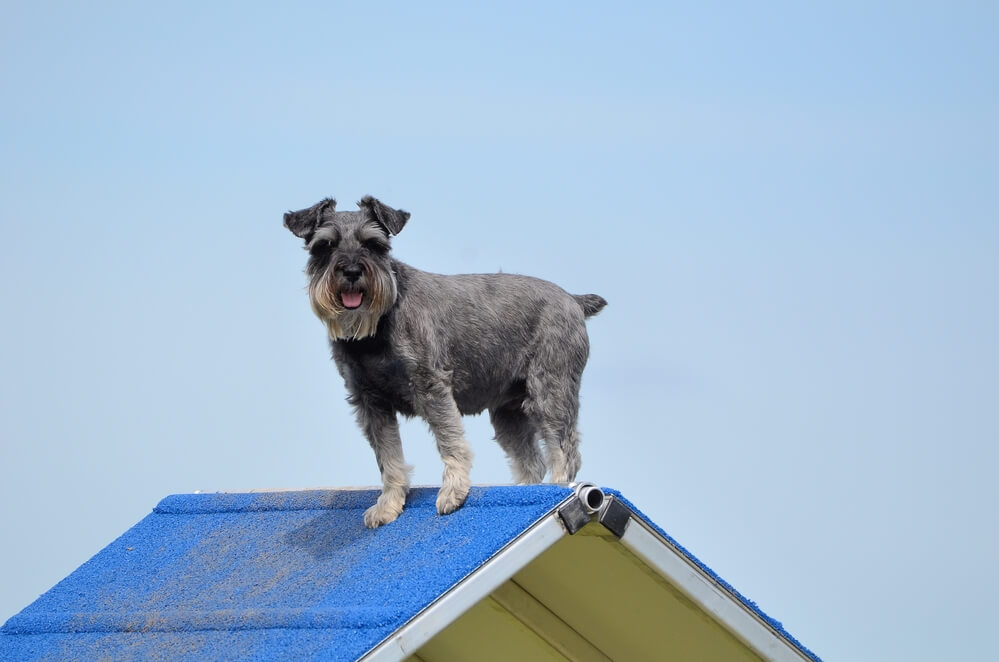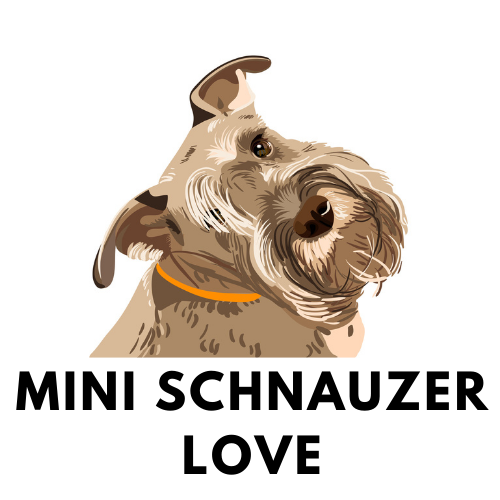If you’re considering bringing a Mini Schnauzer into your life, you’re probably curious about their size, growth stages, and the factors that can influence their dimensions.
This comprehensive guide provides detailed information about the typical size of Mini Schnauzers, how it compares to other breeds, and what you can expect as they grow and develop.
We’ll also discuss how diet, exercise, and genetics play a role in determining a Mini Schnauzer’s size.
By the end of this post, you’ll have a thorough grasp of what to expect when it comes to living with and caring for a Mini Schnauzer of any size.
Mini Schnauzer Size at Different Life Stages

When you first bring home a Miniature Schnauzer puppy, you might be surprised at how small they are. Newborn Mini Schnauzers typically weigh between 4-6 ounces.
As they grow, their size increases rapidly during the first few months. They reach half of their adult weight at around 3-4 months of age, and by 6-7 months, they should be nearly fully grown.
Mini Schnauzers usually reach their adult height, which ranges between 12-14 inches at the shoulder, by the age of one year.
Their weight can vary, typically falling between 12-20 pounds when fully grown.
Sexual Dimorphism in Mini Schnauzers: Size Differences
Just like many other breeds, Mini Schnauzers exhibit sexual dimorphism, which means males and females have slight size differences.
Male Mini Schnauzers tend to be slightly larger, generally weighing in at 14-20 pounds.
Females, on the other hand, are typically a bit smaller, with a usual weight range of 12-18 pounds.
Genetic Factors That Influence Mini Schnauzer Size
The size of a Mini Schnauzer can be primarily predicted by looking at its parents and their sizes.
If both parents are on the larger side for Mini Schnauzers, their puppies are likely to be more prominent as well.
Similarly, if the parents are smaller, their puppies will tend toward the smaller end of the scale.
However, exceptions do occur due to the randomness of genetic inheritance.
Feeding Regimes and Their Effects on Mini Schnauzer Size

What you feed your Mini Schnauzer and how often you feed them can significantly impact their size and overall health.
High-quality puppy food intended for small breeds is usually recommended for the first year of life, as this contains the nutrients necessary for their growth and development.
Overfeeding or underfeeding can lead to health issues and potentially impact the size of your Mini Schnauzer.
It’s always a good idea to consult with a vet to establish an ideal feeding schedule and diet.
Physical Activity and Mini Schnauzer Growth
Regular exercise is crucial for a Mini Schnauzer’s health and development. These energetic dogs require daily walks, playtimes, and mental stimulation.
Regular physical activity helps them maintain a healthy weight and supports their overall growth.
Remember, lack of exercise can lead to obesity, which can make your Mini Schnauzer appear larger but is unhealthy for them.
Comparing Mini Schnauzer Size to Other Breeds
Mini Schnauzers are classified as a small breed, and when compared to other breeds, their size is right in the middle of the small breed range.
They are larger than breeds such as Chihuahuas and Yorkshire Terriers but smaller than medium-sized breeds like Border Collies or Bulldogs.
Busting Common Misconceptions About Mini Schnauzer Size

Some people might think that the word “Mini” means these dogs are tiny, but that’s not entirely true.
While they are small compared to many breeds, they’re not the smallest, and they’re quite sturdy for their size.
Another misconception is that you can predict the exact size of a Mini Schnauzer puppy when it’s fully grown.
In reality, while you can estimate based on the parent’s size, the final size can be influenced by several factors, including diet, exercise, and overall health.
Accommodating for Mini Schnauzer Size at Home
Despite their relatively small size, Mini Schnauzers are active and energetic dogs that need space to play and explore.
Even if you live in an apartment, you should ensure there are places where your dog can move freely.
Providing your dog with toys and ensuring they get plenty of exercise outside the home will also help them stay fit and happy.
Health Issues Tied to Mini Schnauzer Size
Some health issues can be tied to the size of Mini Schnauzers.
These include obesity, which can result from overfeeding or lack of exercise, and can lead to other serious health issues like heart disease or diabetes.
It’s essential to monitor your dog’s weight and size to ensure they stay within a healthy range.
Determinants That Influence Mini Schnauzer Size

Apart from genetics, diet, and exercise, other factors may influence the size of a Mini Schnauzer.
For instance, health conditions, such as worms or other parasites, can hinder their growth.
Ensuring that your Mini Schnauzer gets regular vet check-ups is crucial to detect and treat any potential issues early.
Tips for Measuring Your Mini Schnauzer’s Size Accurately
Measuring your Mini Schnauzer’s size isn’t just about their weight.
It also includes their height (measured from the ground to the shoulder), length (from the chest to the rear), and girth (around the widest part of the chest). You’ll need a tape measure for this.
Remember, these measurements can help you select the right size of items like harnesses, crates, or beds for your pet.
Can Size Predict Behavior in Mini Schnauzers?

While some may believe size is an indicator of a dog’s behavior, this isn’t necessarily true for Mini Schnauzers.
Regardless of size, Mini Schnauzers are known for their spirited and playful personalities.
They are intelligent, active dogs that are eager to please and do well with proper training.
| Parameter | Average Size Range |
| Weight | 12-20 pounds |
| Height | 12-14 inches |
| Length | 14-16 inches |
| Girth | 15-17 inches |
Final Thoughts: Living with a Mini Schnauzer’s Size
Mini Schnauzers are wonderful companions, brimming with spirit and personality.
Their size, which is influenced by various factors like genetics, diet, and exercise, falls within the small breed range.
This means they can comfortably fit into various living situations, from apartments to houses with yards.
Despite their size, remember they’re active and need both physical and mental stimulation to stay happy and healthy.
A proper understanding of their growth stages, size differences between genders, and potential health issues related to size is essential for prospective owners.
Regular vet visits and a balanced diet are vital to ensuring their optimal growth and development.
At the end of the day, whether small or slightly larger, Mini Schnauzers are sure to bring joy and liveliness to their families.
Their size doesn’t dictate their big heart and bright personality.
They will fill your life with immeasurable love and companionship regardless of their dimensions.














